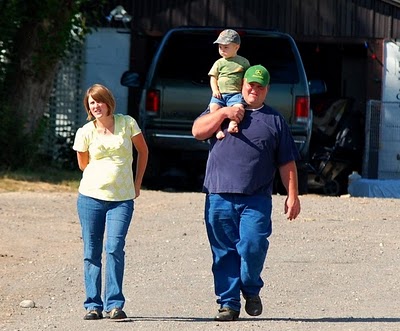
Agricultural News
Public Trust is a Terrible Thing to Waste
Wed, 13 Jun 2012 18:17:30 CDT

As the debate over the 2012 Farm Bill heats up, Daryll E. Ray of the University of Tennessee's Agricultural Policy Center cautions farmers in his latest opinion piece to carefully protect the credibility they have with the general public.
When it comes to public policy support and trust, the most important asset that farmers have going for them is credibility with the general public. Evidence of this support can be seen in the historical bipartisanship that has characterized the passage of farm bill legislation, despite the fact that farmers now account for less than two percent of the US population. It can be seen in the outpouring of gifts to the annual Farm Aid concerts featuring Willie Nelson and other artists.
This degree of public support has been built up over many years, beginning at a time when one-third of the US population earned a living by farming. When the mortgage crisis hit farmers in the 1980s, people understood. As prices fell in the late 1990s, farmers could count on Congress to vote for Emergency Payments because of widespread public support of family farmers and their stewardship of the land.
As many have discovered, trust that has been built up over generations can be lost in a moment.
As farmers look at the proposals for the 2012/2013 farm bill, it would be well to keep the idea of public trust in mind. The public understands the vagaries of weather and the impact of long periods of low prices on farm stability and the stability of their food supply.
But let the public think that they have been taken for a ride and that trust may disappear.
Support over time for Direct Payments has declined as more and more voters discovered that these payments continue to be paid during periods of high prices and record farm incomes, even as other programs are cut.
We have raised questions about revenue insurance that provides payments even when farm income is well north of the cost of production. This is particularly troubling because when prices fall over a period of years, revenue insurance provides little protection just when farmers need it the most. Safety-net appeals under such conditions do not work. Why would the public want to subsidize crop insurance premiums that provide funds when they are not needed and leave farmers at risk when help is needed the most?
A just released study suggests that this criticism applies equally to the shallow-loss programs being considered as a replacement for Direct Payments. According to a working paper by Vincent Smith, Bruce Babcock, and Barry Goodwin titled "Field of Schemes: The Taxpayer and Economic Welfare Costs of Shallow-Loss Farming Programs," "shallow-loss programs are costly.
The shallow-loss programs they studied "would provide farmers who produce crops like corn, soybeans, and wheat with subsidies when current-year revenues for that crop fall below about 90 percent of their average levels over the previous five years." The shallow-loss program as approved by the Senate Agriculture Committee would allow farmers to choose between county yields and individual farm yields.
The cost of the program will depend on the collective price and yield experience of farmers during the tenure of the bill. If prices stay "high" and yields remain near trend levels, the cost of a shallow-loss program could be minimal. But Smith, Babcock and Goodwin show that under price and yield variations that are well within agriculture's experience over the last quarter century "these programs could cost the taxpayer as much as or more than the direct payments program they would replace, averaging as much as $8 to $14 billion a year over the next five years."
In addition, Smith, Babcock, and Goodwin argue that "shallow-loss programs based on individual farm yields are not only expensive, but also very likely to induce wasteful, economically inefficient farming practices because of the extreme incentives they generate for moral hazard behaviors"-farmers would engage in actions and take risks that in the absence of insurance they would avoid.
They also believe that "Shallow-loss programs amount to a new entitlement: Payments would be automatically triggered by revenue shortfalls and would be linked to average revenues over the past five years. So, when prices and yields increase, payment triggers will also increase, creating a new, partially disguised entitlement program that locks farmers into near-record incomes at the taxpayer's expense."
All this brings us back to the issue we began this column with: public trust. Chances are good that Congress will include a shallow-loss program in the 2012/2013 Farm Bill. The question is, is the combination of features of existing publicly subsidized revenue insurance products and the proposed shallow-loss program in the best interest of farmers?
Our answer is a double "NO." Aside from farm-level yield disasters, the combination does not protect farmers when they need protection the most-when prices are low for multiple years of time. In addition, it erodes public trust by providing massive payments when other programs are being cut and farmers need them the least.
WebReadyTM Powered by WireReady® NSI
Top Agricultural News
More Headlines...




















